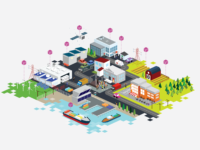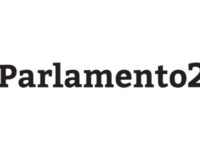The European Commission led #Blockchain4EU as a forward-looking exploration of existing, emerging and potential Blockchain and other DLTs (Distributed Ledger Technologies) applications for industrial sectors. Through an experimental and participatory approach, this project allowed first to come up with an overview of promising applications across industries, and second to co-design five prototypes that physically showcase how Blockchain could be applied in the near future.
Case Studies
Innovations:
0
This website, as well as any data and map included herein, are without prejudice to the status of or sovereignty over any territory, to the delimitation of international frontiers and boundaries and to the name of any territory, city or area.
In response to the generalized lack of political accountability and availability of public information, this online tool provides an open and qualified access to the Spanish Parliament’s activity, related to the implementation of the Agenda 2030.It promotes a transparent and participative implementation of this agenda and allows CSOs, policy makers and the media to monitor political proposals.The Spanish Government has included Parlamento2030 as one of the tools of its 2030 Agenda National…
Case Study
Innovative use of social media for co-creation of the 4th National Action Plan (2018-2020) –…
Innovative use of social media (Whatsapp) platform to increase participation and disseminate information for the creation of Paraguay's 4th National Action Open-Government Plan. These 14 online groups were created to allow citizens from the countryside, from marginalized and vulnerable groups, to be able to participate on an equal standing with other citizens from urban areas with access to policyholders. It is innovative because it was the first time we used this platform to involve citizens.
Not only is transparency in Brazil taken as the principle of publicity in public administration, but also as a Public Policy, led by integrated actions focused on achieving specific goals.
Brazilian Government has reaped concrete quantitative and qualitative transparency-driven results: saving of resources, reformulation of public policies and inhibition of misconduct and corruption acts.
The Transparency Portal is the core of the policy and central tool to promote results through transparency.
Canada Beyond 150 was an experiment in leadership development for a diverse cohort of new public servants, with the goal of encouraging a culture shift to a more open and innovative public service. Working in groups part-time over a year, participants learned foresight, design thinking and external engagement methods and applied them to complex policy issues, with a focus on diversity and inclusion. It demonstrated the power of experiential learning, especially from engagement with stakeholders.
En 2015, le Parlement de Wallonie a engagé une réforme de son Règlement ayant notamment pour objectif d’associer davantage les citoyens wallons au travail législatif des députés.
Dans ce cadre, plusieurs dispositifs ont été mis en place dont la modernisation et le renforcement du droit de pétition qui permet aux citoyens de déposer et soutenir des pétitions par voie électronique.
Il s’agit d’un projet novateur pour le Parlement qui se veut plus que jamais ouvert et à…
Conçus et impulsés par Etalab, Datactivist et Vraiment Vraiment dans le cadre de la démarche de gouvernement ouvert en France, le forum « Open d’État » est une rencontre entre agents publics impliqués dans des projets d’innovation, et des acteurs de la société civile (acteurs privés, associations, ONG…) lors de forums ouverts sur des projets spécifiques autour de la donnée. Ces Forums permettent d'expliquer les projets et de recueillir les demandes des citoyens.
The justice system is fundamental for democracy. To ensure citizen confidence, to transparent all its actions and to ensure the legitimacy of judicial decisions, the Judicial Branch joined the worldwide effort to promote open government partnership with the creation of an institutional policy of Open Justice, unique in the region, which promotes judicial management based on transparency, citizen participation and institutional collaboration. It will benefit all users of the Judicial Branch.
Under the Fast-Track procedure for access to EU documents complaints, the EO aims to take a position within two months on whether the document should be released to the complainant by the EU administration. This represents a substantial Ombudsman reduction in inquiry time, achieved by creating a separate dedicated team to process these complaints quickly. The aim is to increase the chances of complainants getting information while it is still relevant and useful.
2018 was the year of reflection on the future of Europe. In order to understand the hopes and fears of citizens of Latvia regarding the future of European Union, more than 1500 citizens have been engaged in consultations that took place both in the regions of Latvia and online. Consultations were co-organized by state institutions and civil society organisations using various experimental formats.





